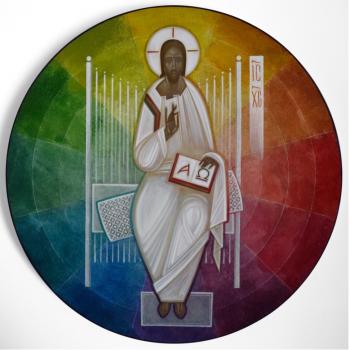On a recent trip to New York City, I found this gem buried in the stacks at the Strand Bookstore: The Collected Sermons of Dietrich Bonhoeffer. The sermons in the compilation span about a decade from 1928 to 1939. The final sermon in the book was preached in November of 1939, just a few months before Bonhoeffer was forbidden to speak in public by the Nazis.
I want to quote some portions of a sermon that relate to how a pastor and congregation ought to relate to one another. The sermon is entitled “Ambassadors for Christ” and delivered on October 22, 1933.
At this point in Bonhoeffer’s life, he had just agreed to serve as the full-time pastor to two German-speaking congregations in London. This is the first sermon he preached to his new flock. In it, he speaks to the respective responsibilities the shepherd and the flock have one to another, as ambassadors for Christ.
Even though Bonhoeffer preached this word over 80 years ago, I think it is just as applicable now, if not more so. What I have in mind when I suggest it may be more pertinent now is the troublesome trend towards consumerism in the pews, celebrity Christianity fostered by both sheep and shepherd, and a desire for personal empire building by celebrity pastors. I won’t provide any more commentary… I’ll just provide some big chunks of Bonhoeffer’s sermon for your consideration.
Below are some of his exhortations to the church, both those in the pulpit and the pew.
How the congregation should view the pastoral office
A change of pastors is a situation in which we get stuck in our very personal feelings, but we should be encouraged to see something much larger, which does not concern persons at all, neither the old one nor the new one, but rather concerns the mission that is entrusted to both of them, no matter who they are. What matters is the one who gives the orders, not the one who carries them out, only the master, rather than the servant…
For the congregation, however, this means at this point everything depends on its being led to let go of the issue of the person and to look instead to the Lord of the church; to pay attention to the preaching rather than the preacher; and to have only one question: Is this truly the Gospel of our God that we are hearing?…There is really only one question for a congregation to ask of its pastor: Are you offering us the eternal word of God, the word of life, wherever you can, in the pulpit and in daily life? Or are you giving us stones instead of bread?…
The responsibility of the pastor
This is what makes a sermon a unique thing in all the world, so completely different from any other kind of speech. When a preacher opens the Bible and interprets the word of God, a mystery takes place, a miracle: the grace of God, who comes down from heaven into our midst and speaks to us, knocks on our door, asks questions, warns us, puts pressure on us, alarms us, threatens us, and makes us joyful again and free and sure. When the Holy Scriptures are brought to life in a church, the Holy Spirit comes down from the eternal throne, into our hearts, while the busy world outside sees nothing and knows nothing about it – that God could actually be found here. Out there they are all running after the latest sensations, the excitements of evening in the big city, never knowing that the real sensation, something infinitely more exciting, is happening in here: here, where eternity and time meet, where the immortal God receives mortal human beings, through the holy Word, and cares for them, where human souls can taste the starkest terrors of despair and the ultimate depths of God’s eternity.
Why do they not know this? How is it possible that thousands upon thousands of people are bored with the church and pass it by? Why did it come about that the cinema really is often more interesting, more exciting, more human and gripping than the church? Can that really be only the fault of others and not ours as well? The church was different once. It used to be that the questions of life and death were resolved and decided here. Why is this no longer so?
It is because we ourselves have made the church, and keep on making it, into something which it is not. It is because we talk too much about false, trivial human things and ideas in the church and too little about God. It is because we make the church into a playground for all sorts of feelings of ours, instead of a place where God’s word is obediently received and believed. It is because we prefer quiet and edification to the holy restlessness of the powerful Lord God, because we keep thinking we have God in our power instead of allowing God to have power over us, instead of recognizing that God is truth and that over against God the whole world is in the wrong. It is because we like too much to talk and think about a cozy, comfortable God instead of letting ourselves be disturbed and disquieted by the presence of God – because in the end we ourselves do not want to believe that God is really here among us, right now, demanding that we hand ourselves over, in life and death, in heart and soul and body. And finally, it is because we pastors keep talking too much about passing things, perhaps about whatever we ourselves have thought out or experienced, instead of knowing that we are no more than the messengers of the great truth of the eternal Christ…
But we ask, what human being can do this? Who can fulfill this commission? Who can carry this burden without breaking down under it? No human being can, not even the most devout…We need to know that the congregation is shouldering the burden with us, helping us, standing by us, pointing out our mistakes and praying for us, and forgiving us our sins. No pastor can do such a job properly if it is not given to him or her to know this. Many a pastor has failed because he or she wanted to carry the congregation, but the congregation did not carry the pastor. The congregation that does not pray for the ministry of its pastor is no longer a congregation. A pastor who does not pray daily for the congregation is no longer a pastor.











